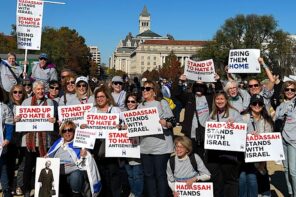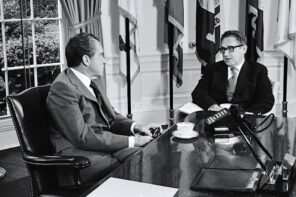The Advisory Council to President Barack Obama’s Office of Faith-Based and Neighborhood Partnerships submitted its recommendations to the administration yesterday, and civil liberties groups are calling for quick implementation of its advice on bolstering constitutional safeguards. The Coalition Against Religious Discrimination (CARD), comprised of 26 religious, civil liberties, and religious freedom organizations, is also demanding action from the administration to fulfill campaign promises on a contentious issue the administration asked the Council not to address.
The administration had requested guidance from the Reform of the Office task force of the Advisory Council on how it could better protect both the civil liberties of beneficiaries of faith-based programs and the religious freedom of providers. But the administration specifically did not include on the Council’s to-do list one of the most controversial questions — whether faith-based recipients of taxpayer-funded grants could discriminate in hiring on the basis of religion.
Under Bush-era rules that the Obama administration has not changed, a recipient of federal grant money may discriminate in hiring on the basis of religion — permitting taxpayer dollars to fund, for example, an organization that discriminates against candidates of different religions, or discriminates against LGBT applicants based on alleged religious belief. Despite being prodded by 58 religious and civil rights organizations last fall, asserting that the Bush-era Office of Legal Counsel memo permitting discrimination “is not justified under applicable legal standards and threatens to tilt policy toward an unwarranted end that would damage civil rights and religious liberty,” the administration has not altered the Bush policy.
During the campaign, Obama promised:
First, if you get a federal grant, you can’t use that grant money to proselytize to the people you help and you can’t discriminate against them – or against the people you hire – on the basis of their religion. Second, federal dollars that go directly to churches, temples, and mosques can only be used on secular programs.
Religious supporters of a federal faith-based project immediately reacted negatively after Obama delivered that speech in Zanesville, Ohio in July 2008. Just as the campaign was trying to court these religious voters away from voting Republican, leaders complained to the campaign that such efforts to protect the civil liberties of beneficiaries, employees, and applicants would eliminate their interest in having a faith-based initiative at all.
When Obama took office and created his faith-based office, he announced that hiring discrimination questions would be addressed on a “case-by-case” basis, and would await guidance from his Advisory Council on the other issues. “We objected to the decision to take government-funded religious hiring out of the discussions of the Council altogether,” said Michael Lieberman, Washington Counsel of the Anti-Defamation League, a CARD member, “and we deeply lament the total lack of progress toward meeting the President’s Zanesville commitment on the issue.”
While the administration has waited for the task force’s recommendations, it has done nothing to address the constitutional inadequacies of the faith-based office. The CARD letter states:
We are disappointed that now, over a year after your Executive Order, almost every aspect of the Bush Administration Faith-Based Initiative remains in place – the White House and all the federal agencies are still operating under all the inadequate rules and insufficient safeguards imposed by the previous Administration.
On the hiring question, the CARD letter charges that the Obama administration’s failure revoke to the Bush OLC memo “threatens core civil rights and religious freedom protections.” The administration’s ‘”case-by-case’ approach,” CARD charges, “raises the problem of religious selectivity and provides scant opportunity for transparency or accountability. Following this approach indefinitely while leaving the Bush-era rules in place forestalls a critical opportunity for prophylactic guidance and presidential leadership against employment discrimination within federally-funded social welfare projects by faith-based grant recipients.”
The Reform of the Office task force did make recommendations that CARD says will help protect beneficiaries from proselytizing, require providers to give beneficiaries notice of their rights to secular alternatives and provide access to them, and create guidance and training for federal agencies to ensure compliance with safeguards. But the task force could not reach consensus on another Obama campaign promise: whether houses of worship should be required to form a separate non-profit organization to receive federal funds. CARD is urging the administration to adopt the task force majority opinion recommending the implementation of such a requirement.
The Rev. C. Welton Gaddy, who served on the task force and is president of The Interfaith Alliance, a CARD member, said, “Until [Obama] takes action, we are still working under the same guidelines used by the Bush Administration which allowed for untold damage to befall the institutions of religion and government. I have urged the administration to implement the recommendations via executive order as soon as possible.” Americans United for the Separation of Church and State, also a CARD member, said in a statement, “the Obama administration needs to take action, not spend time studying reports.”




